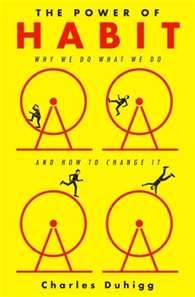The Entrepreneur
Redefining Entrepreneurship
 I have often been part of a civic group discussing how to assist the growth of small businesses in the community. The word entrepreneur is commonly used by members of the group, but it seems that the term means different things to different people. Some define an entrepreneur as anyone who goes into business for themselves. That could be anyone who decided to start a business cutting lawns or washing cars. These are all noble businesses and do provide income for their owners, but it seems that this type of entrepreneurship is not the type celebrated widely. There needs to be more to it than providing a service or several jobs.… Read the rest
I have often been part of a civic group discussing how to assist the growth of small businesses in the community. The word entrepreneur is commonly used by members of the group, but it seems that the term means different things to different people. Some define an entrepreneur as anyone who goes into business for themselves. That could be anyone who decided to start a business cutting lawns or washing cars. These are all noble businesses and do provide income for their owners, but it seems that this type of entrepreneurship is not the type celebrated widely. There needs to be more to it than providing a service or several jobs.… Read the rest

 While employment is a surefire way of securing your future, there are always those who believe that entrepreneurship should be a priority not only among those who are already established in life but also for students who have just finished their studies. Other people believe that getting involved with a profitable business is still the way to go if one wants to be financially successful in the future.
While employment is a surefire way of securing your future, there are always those who believe that entrepreneurship should be a priority not only among those who are already established in life but also for students who have just finished their studies. Other people believe that getting involved with a profitable business is still the way to go if one wants to be financially successful in the future. Setting goals is one of the most important keys to achieving success. Studies have shown that the most successful people are the ones who have specific, written goals.
Setting goals is one of the most important keys to achieving success. Studies have shown that the most successful people are the ones who have specific, written goals. Several weeks ago, we were invited to conduct a three-hour seminar for the Independent Garage Owners of North Carolina (IGONC). The subject of the seminar was Business Model Generation, a topic which shows the participants a method to look at their current business operation and discover ways to bring it more in-line with their customer needs.
Several weeks ago, we were invited to conduct a three-hour seminar for the Independent Garage Owners of North Carolina (IGONC). The subject of the seminar was Business Model Generation, a topic which shows the participants a method to look at their current business operation and discover ways to bring it more in-line with their customer needs. Yes, it’s time to start thinking about plans for the coming year. Many of the most successful businesses in our area use this period of time to develop next year’s plan for growth and success. In fact, several travel to workshops as far away as Chicago for guidance on developing their plan.
Yes, it’s time to start thinking about plans for the coming year. Many of the most successful businesses in our area use this period of time to develop next year’s plan for growth and success. In fact, several travel to workshops as far away as Chicago for guidance on developing their plan. are
are  There are many important steps to consider when developing a Business Plan for your company, but the first step is to fully understand the main uses of a business plan. The four main uses of a business-plan are as follows:
There are many important steps to consider when developing a Business Plan for your company, but the first step is to fully understand the main uses of a business plan. The four main uses of a business-plan are as follows:
 A recent survey published by
A recent survey published by  Whether you are a business, a charitable organization, or an association, the relationships you have with customers, donors, or members is critical to continued success. That relationship needs to be one which builds loyalty. At the root of success is the loyalty of those, in many cases employees, within the organization to the mission. A lack of employee loyalty may result in the inability to achieve goals and dysfunctional communication. Morale and culture issues may develop. On an overall basis, there is no alignment of systems, people, and strategy.
Whether you are a business, a charitable organization, or an association, the relationships you have with customers, donors, or members is critical to continued success. That relationship needs to be one which builds loyalty. At the root of success is the loyalty of those, in many cases employees, within the organization to the mission. A lack of employee loyalty may result in the inability to achieve goals and dysfunctional communication. Morale and culture issues may develop. On an overall basis, there is no alignment of systems, people, and strategy. Every morning I have a routine to start my day. I get up, brush my teeth, floss, rinse with mouthwash, shower and put in my contact lens. If for some reason that routine is disturbed, I might find myself later in the day wondering why I can’t see well. Have you ever found yourself leaving home and going in the wrong direction in your car because you are not going to work that day, but to a different destination. These are two examples of the habits that develop over time into routines
Every morning I have a routine to start my day. I get up, brush my teeth, floss, rinse with mouthwash, shower and put in my contact lens. If for some reason that routine is disturbed, I might find myself later in the day wondering why I can’t see well. Have you ever found yourself leaving home and going in the wrong direction in your car because you are not going to work that day, but to a different destination. These are two examples of the habits that develop over time into routines Large organizations, with sophisticated management systems track performance measurements with a religious fervor. What about small businesses and individuals? Do they need and have these measurements of business success? Good metrics go beyond the traditional sales and profit figures from the financial statements. These are measurements of history or time passed. Good metrics measure the present and future trends. They indicate issues that can be addressed in the present, not issues that must recalled from the past.
Large organizations, with sophisticated management systems track performance measurements with a religious fervor. What about small businesses and individuals? Do they need and have these measurements of business success? Good metrics go beyond the traditional sales and profit figures from the financial statements. These are measurements of history or time passed. Good metrics measure the present and future trends. They indicate issues that can be addressed in the present, not issues that must recalled from the past. Strategic Planning has always been a key leadership tool in the development of successful for-profit organizations. Its format and time scope may vary, but it serves as an important function in business success. It has helped many businesses focus their priorities on future growth and profitability.
Strategic Planning has always been a key leadership tool in the development of successful for-profit organizations. Its format and time scope may vary, but it serves as an important function in business success. It has helped many businesses focus their priorities on future growth and profitability. It is often the case that a Board of Directors, whether it is for a Fortune 500 company or a local non-profit, has to recruit and evaluate candidates for the position of CEO or President. When asked what they are looking for during this selection process, the most common answer is leadership. But why do they look for a candidate with leadership skills and how do they determine if that candidate will be an effective leader. Most importantly, they are looking for a person who can accomplish tasks and achieve results. Let’s consider that way first and then two models for determining an individual’s leadership ability.…
It is often the case that a Board of Directors, whether it is for a Fortune 500 company or a local non-profit, has to recruit and evaluate candidates for the position of CEO or President. When asked what they are looking for during this selection process, the most common answer is leadership. But why do they look for a candidate with leadership skills and how do they determine if that candidate will be an effective leader. Most importantly, they are looking for a person who can accomplish tasks and achieve results. Let’s consider that way first and then two models for determining an individual’s leadership ability.…  Surveys of employees often ask what is the one attribute they look for in an effective leader. Trust always near the top of the list. Whether you are a manager, supervisor, salesman or team lead it is important to be trusted by those you deal with on a regular basis. Once that trust is lost, it is difficult to impossible to regained.Here are some suggestions on building and maintaining trust.…
Surveys of employees often ask what is the one attribute they look for in an effective leader. Trust always near the top of the list. Whether you are a manager, supervisor, salesman or team lead it is important to be trusted by those you deal with on a regular basis. Once that trust is lost, it is difficult to impossible to regained.Here are some suggestions on building and maintaining trust.… 

 One of the greatest lessons in time management is to realize the difference between spending time and investing time. The dictionary defines spend as “to use up, exhaust, consume.” If you spend, you have no return. On the other hand, when we invest we “spend with expectation of some satisfaction, of obtaining an income or profit.”
One of the greatest lessons in time management is to realize the difference between spending time and investing time. The dictionary defines spend as “to use up, exhaust, consume.” If you spend, you have no return. On the other hand, when we invest we “spend with expectation of some satisfaction, of obtaining an income or profit.”